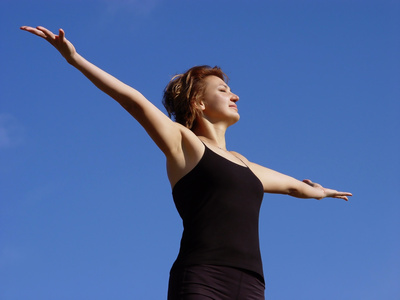Welcome to the latest in our ongoing series of PatientTalk.Org interviews. Today we are

Osteoporosis
interviewing Elizabeth a 75 year old woman living in London, England who has been lucky enough to get a wide range of treatments which allow her to live a full life with Osteoporosis. It is also worth mentioning that she suffers from Osteoarthritis.
We hope this interview will give you an idea about some of the options which are becoming more and more available to osteoporosis sufferers.
PatientTalk.Org:- How long have you had osteoporosis and what are your main symptoms?
Elizabeth: In fact I can’t give a clear answer. Twenty years ago when I was going through the menopause I was told that I was on the cusp of being diagnosed with osteoporosis. Ten years later I tripped and broke my wrist. A second scan revealed that my bone density appeared to be still in the range of normal for my peer group. However at this stage I was given calcium and vitamin D tablets on a daily basis (which I still take). Another ten years passed and I tripped once again running up some stairs and fractured the other wrist. At this time I was told that there was no point in another scan as two low-impact fractures at my age equalled osteoporosis. I had been told that walking would help to maintain and strengthen my lower body bone density. So I try and walk for at least one hour every day.
PatientTalk.Org: So apart from the calcium and vitamin supplements what other treatments have you been offered?
Elizabeth: Because I was aware that I’d lost a lot of upper body strength, for example undoing jars became a real chore, due to the broken wrists and open heart surgery which took place 25 years ago, I wanted some form of exercise which would improve my situation. I was told by a friend that she was following a course of Nordic walking and this seemed to be the answer.
I contacted the local health service who were very helpful and invited me to a set of tests and check-ups to ascertain my suitability for a Nordic walking course.
They were happy for me to start the course but beforehand they wanted me to do a course of bone density exercises. These took place at a course of eight weekly sessions. They consisted of a warm up, a series of about 10 different exercises each of 2 minutes, followed by a cooling down session. They were supervised by exercise specialists who were extremely supportive.
During this course I learned of another 8 week course in Gold Zumba. That is a type of Zumba more suitable for older people. I’ve now been on the course for around 4 weeks. And enjoy it.
PatientTalk.Org: So what actually is Zumba?
Elizabeth: I think it can be described as some form of dance which can be used as a fitness programme as well. We are taught by a qualified instructor who specialises in Zumba as a therapy. For me the combination of exercise with music means that I’m pushed just a little bit harder than other types of exercise. This is good for co-ordination of the body and, in fact, my brain. Zumba is great for balance as well.
PatientTalk.Org: So have you noticed any improvements?
Elizabeth: This is difficult to say. In fact it is not my main objective. I am really looking to maintain my current body strength and flexibility. I notice that as each session goes on that I’m more flexible and my balance is much better.
And I’m now in a position to start Nordic walking.
PatientTalk.Org: Are you using any other treatments?
Elizabeth: I have now started a 3 year course of biannual subcutaneous injections for my osteoporosis. There are other treatments but it was felt that my digestive system was not suitable for them.
PatientTalk.Org: What sort of medical education / advice were you give?
I was invited to a series of talks at either the hospital or local health centres by osteoporosis experts in
a) General information about osteoporosis
b) Exercise and osteoporosis
c) Diet and osteoporosis
PatientTalk.Org:What did you learn about diet and osteoporosis?
Elizabeth: Apart from information about foods and drink which are particularly good for sufferers of osteoporosis which include dairy, lentils, fish and some vegetables, we were advised that there were certain circumstances in which it was more efficacious to take the supplements. These were not explained to me by my normal Doctor. Indeed the supplements documentation contains only limited advice. The lectures I attended however provided me with far clearer advice. What concerns me is that many other people with osteoporosis are not getting the full benefits of the supplements they are taking.
PatientTalk.Org:Thanks very much for this. Very useful for us and our readers.
So over to you. What do you think of Elizabeth’s story? It would be great if you could share your thoughts in the comments box below. You might want to think in terms of the following questions:-
1) How long have you been diagnosed with Osteoporosis?
2) What sort of treatments have you had and how effective have they been?
3) What sort of support did you receive in terms of education about the condition?
4) Do you feel you have been well advised regarding the use of supplements?
5) What sorts of exercise do you take for your osteoporosis?
Many thanks in advance!



